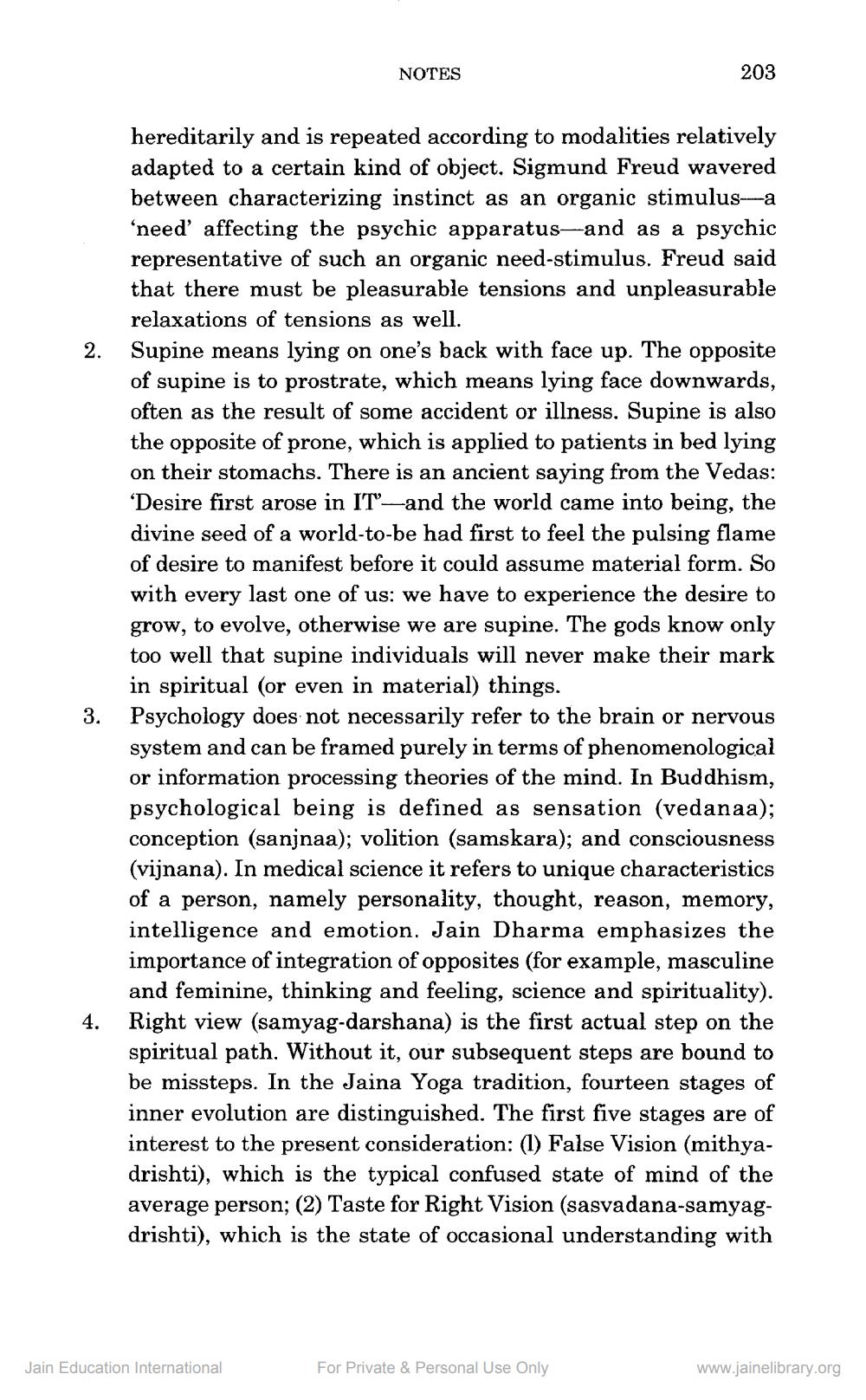________________
NOTES
203
hereditarily and is repeated according to modalities relatively adapted to a certain kind of object, Sigmund Freud wavered between characterizing instinct as an organic stimulus-a ‘need affecting the psychic apparatus-and as a psychic representative of such an organic need-stimulus. Freud said that there must be pleasurable tensions and unpleasurable relaxations of tensions as well. Supine means lying on one's back with face up. The opposite of supine is to prostrate, which means lying face downwards, often as the result of some accident or illness. Supine is also the opposite of prone, which is applied to patients in bed lying on their stomachs. There is an ancient saying from the Vedas: ‘Desire first arose in IT-and the world came into being, the divine seed of a world-to-be had first to feel the pulsing flame of desire to manifest before it could assume material form. So with every last one of us: we have to experience the desire to grow, to evolve, otherwise we are supine. The gods know only too well that supine individuals will never make their mark in spiritual (or even in material) things. Psychology does not necessarily refer to the brain or nervous system and can be framed purely in terms of phenomenological or information processing theories of the mind. In Buddhism, psychological being is defined as sensation (vedanaa); conception (sanjnaa); volition (samskara); and consciousness (vijnana). In medical science it refers to unique characteristics of a person, namely personality, thought, reason, memory, intelligence and emotion. Jain Dharma emphasizes the importance of integration of opposites (for example, masculine
and feminine, thinking and feeling, science and spirituality). 4. Right view (samyag-darshana) is the first actual step on the
spiritual path. Without it, our subsequent steps are bound to be missteps. In the Jaina Yoga tradition, fourteen stages of inner evolution are distinguished. The first five stages are of interest to the present consideration: (1) False Vision (mithyadrishti), which is the typical confused state of mind of the average person; (2) Taste for Right Vision (sasvadana-samyagdrishti), which is the state of occasional understanding with
3.
Jain Education International
For Private & Personal Use Only
www.jainelibrary.org




